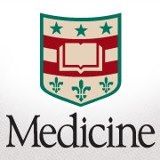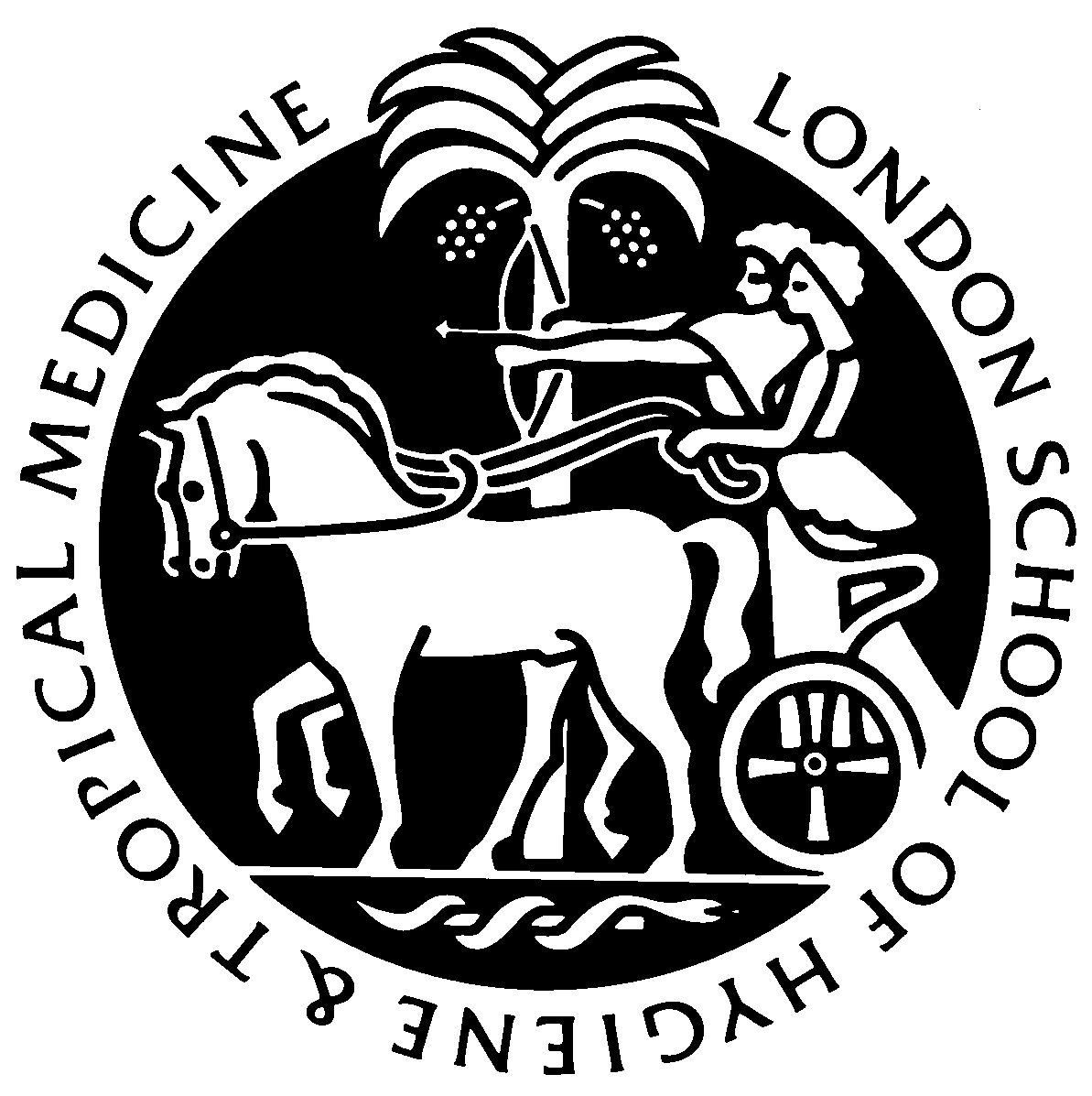预约演示
更新于:2025-05-07
Folate
更新于:2025-05-07
基本信息
别名- |
简介- |
关联
32
项与 Folate 相关的药物作用机制 Bacterial DHFR抑制剂 [+1] |
在研机构 |
原研机构- |
在研适应症 |
非在研适应症- |
最高研发阶段批准上市 |
首次获批国家/地区 中国 |
首次获批日期1996-01-01 |
作用机制 DHFR抑制剂 [+1] |
在研机构 |
在研适应症 |
最高研发阶段批准上市 |
首次获批国家/地区 美国 |
首次获批日期1981-10-28 |
133
项与 Folate 相关的临床试验NCT06869850
MFGM-EnhaNceD RUTF for Children With SAM
The goal of this clinical trial is to test the use of milk fat globule membrane (MFGM) in ready-to-use therapeutic food (RUTF) in children with severe acute malnutrition in Sierra Leone. The main questions it aims to answer are:
* Will the inclusion of MFGM in RUTF for 6-59-month-old Sierra Leonean children with severe acute malnutrition improve their neurodevelopment?
* Will the inclusion of MFGM in RUTF for 6-59-month-old Sierra Leonean children with severe acute malnutrition reduce its worst consequences: death, hospitalization, and remaining severely malnourished despite treatment?
Researchers will compare the MFGM-containing RUTF to standard RUTF, which contains skim milk powder.
Participants will:
* undergo measurement of length, weight, mid-upper arm circumference, and nutritional edema assessment every two weeks during severe malnutrition treatment
* be treated with either MFGM-RUTF or standard RUTF at a dose of 2 sachets per day for up to 12 weeks
* undergo neurodevelopmental testing using the Malawi Developmental Assessment Tool at the end of SAM treatment and 6 months later
* a subset of participants will undergo blood spot collection and stool sample collection
* Will the inclusion of MFGM in RUTF for 6-59-month-old Sierra Leonean children with severe acute malnutrition improve their neurodevelopment?
* Will the inclusion of MFGM in RUTF for 6-59-month-old Sierra Leonean children with severe acute malnutrition reduce its worst consequences: death, hospitalization, and remaining severely malnourished despite treatment?
Researchers will compare the MFGM-containing RUTF to standard RUTF, which contains skim milk powder.
Participants will:
* undergo measurement of length, weight, mid-upper arm circumference, and nutritional edema assessment every two weeks during severe malnutrition treatment
* be treated with either MFGM-RUTF or standard RUTF at a dose of 2 sachets per day for up to 12 weeks
* undergo neurodevelopmental testing using the Malawi Developmental Assessment Tool at the end of SAM treatment and 6 months later
* a subset of participants will undergo blood spot collection and stool sample collection
开始日期2025-07-01 |
申办/合作机构 |
NCT06166498
Effect of Single-course Malaria Chemoprevention on Clearance of and Protection from Plasmodium Falciparum Infection in the Presence of Resistance-associated Genotypes in Zambia
The Zambia PCPI study will measure the effect of the parasite genotypes associated with SP resistance on parasite clearance and protection from infection when exposed to SP. The total number of participants is expected to be 600 healthy between 3 to 5 years old who have no symptoms of malaria infection of which 400 children will be assigned to the SP group and 200 to the AS group. The results of this study will allow to measure the effect of the parasite genotypes associated with SP resistance on parasite clearance and protection from infection when exposed to SP.
开始日期2024-07-24 |
NCT06522763
Comparative Randomized, Single Dose, Two-Arm, Parallel Open Label Study to Determine the Bioequivalence of Sulfadoxine/Pyrimethamine 500/25 mg Dispersible Tablet After an Oral Administration to Healthy Adults Under Fasting Conditions
The primary objective of this study is to assess the bioequivalence between the test product and the reference product based on Cmax and AUC0->72 for sulfadoxine and pyrimethamine in healthy adults under fasting conditions. The secondary objectives of present study are to describe the Tmax and assess the safety and tolerability profile of both test and reference products.
开始日期2024-07-01 |
申办/合作机构 |
100 项与 Folate 相关的临床结果
登录后查看更多信息
100 项与 Folate 相关的转化医学
登录后查看更多信息
0 项与 Folate 相关的专利(医药)
登录后查看更多信息
1,108
项与 Folate 相关的文献(医药)2025-07-01·Journal of Colloid and Interface Science
Copper/calcium co-doped carbon dots for targeted cancer therapy with dual-mode imaging and synergistic induction of cuproptosis and calcium-mediated apoptosis
Article
作者: Sun, Hongchen ; Shi, Yaru ; Lu, Zeyu ; Liu, Xiaofan ; Zhou, Ding ; Wang, Yi ; Zhao, Yuping ; Zheng, Wenqian ; González, Fermín Eduardo ; Wang, Yuxuan ; Wang, Peiyu ; Liu, Jinru ; Xu, Xiaowei ; Zhou, Na ; Liu, Yang
2025-06-01·Bioorganic Chemistry
Small molecule therapeutics for receptor-mediated targeting through liposomes in breast cancer treatment: A comprehensive review
Review
作者: Kumar, Sourabh ; Sharma, Rohit ; Ghosh, Rashmi ; Komal, Kumari ; Kurmi, Balak Das ; Kumar, Manish
2025-05-01·iScience
Simultaneous co-delivery of Ginsenoside Rg3 and imiquimod from PLGA nanoparticles for effective breast cancer immunotherapy
Article
作者: Wang, Ying ; Chen, Yixin ; Jiang, Yuancheng ; Hu, Cong ; Nong, Shuxiong ; Ke, Qianqian ; Zhang, Qi ; Wu, Ziling ; Liao, Chilin ; Wu, Meng ; Wu, Ziming
33
项与 Folate 相关的新闻(医药)2025-04-24
·药研网
4月10日,药物临床试验登记与信息公示平台显示,百奥泰启动了BAT8006的首个III期临床。该药物是继普方生物的PRO1184(rinatabart sesutecan)后,第二款进入III期阶段的国产FRα ADC,也是百奥泰第二个启动III期临床的ADC药物。01 叶酸受体α(FRα)概述叶酸受体家族是一组与叶酸代谢相关的膜蛋白,包括叶酸受体α、叶酸受体β、叶酸受体γ和叶酸受体δ等成员,其成员对叶酸及/或其衍生物(例如5‑甲基四氢叶酸)具有高结合亲和力。叶酸受体α(FRα),亦称为叶酸受体1(FOLR1),属于叶酸受体家族,和FRβ亚型同是富含半胱氨酸的糖脂锚定蛋白。FRα由FOLR1编码,是分子量38-40KD的细胞表面糖蛋白,最初发现是作为叶酸结合蛋白,后来发现其除了运送叶酸外还参与调控肿瘤细胞的增殖和转移。叶酸是维持细胞生长和代谢所必需的重要营养物质,它在DNA和RNA的合成中起着关键作用。在某些快速增殖的癌细胞中,其对叶酸的需求更高(如乳腺癌、卵巢癌、肺癌等),叶酸受体α表达水平明显增加。这种过度表达是因为癌细胞需要更多的叶酸来维持其异常高的增殖速率和代谢活性。图1. FRα蛋白晶体结构图(叶酸呈绿色,叶酸结合位点呈橙色。由致病性变体诱导的Cys66Tyr取代位置用红色表示,而Cys66和Cys109之间的二硫键用深蓝色表示。)02 FRα作用机制叶酸受体FRα参与肿瘤的浸润、转移、进展,成为肿瘤治疗有吸引力的靶点。据相关文献,其作用机制主要有如下四种:1. 叶酸结合FRα可通过GP130共受体介导的JAK依赖性过程诱导STAT3激活。2. FRα可与LYN酪氨酸激酶形成大分子复合物来调节PEAK1的磷酸化以促进ERK和STAT3激活。3. GPI锚定的FRα在小窝囊泡中被内化,形成早期的内小体,这些内小体经历酸化和随后的降解与溶酶体融合释放FRα和叶酸。FRα随后被转移到细胞核,并直接作为转录因子发挥作用。4. FRα充当叶酸转运体;快速增殖的细胞需要摄入足够的叶酸,以进行单碳代谢反应和DNA合成、修复和甲基化。图2:FRα 介导的叶酸内化和癌症信号传导调节03 FRα在实体瘤中高表达Scaranti等研究表明,FRα在正常细胞中几乎不表达,在实体瘤中有广泛高表达,因此近年来成为癌症诊断和治疗中的重要靶点。图3:FRɑ在不同类型癌症及相关良性组织中的表达01肿瘤特异性高表达卵巢癌:76-89%的上皮性卵巢癌中高表达,且与高级别、晚期肿瘤相关。肺癌:非小细胞肺癌中14-74%的病例呈现FRα过表达,腺癌的膜表达显著高于鳞癌。乳腺癌:三阴性乳腺癌中表达率为35-68%,而正常乳腺组织几乎无表达。图4. FOLR1基因在肿瘤模型中的表达水平02促癌机制代谢支持:通过内吞叶酸满足癌细胞快速增殖的需求,强化一碳代谢以支持核酸合成。信号通路激活:与LYN酪氨酸激酶形成复合物,激活STAT3和ERK通路,驱动细胞增殖和迁移。转录调控:内化后FRα可转移至细胞核,直接调控Oct4、Sox2等干细胞基因,促进肿瘤进展参与肿瘤已有浸润、转移和发展。吉满生物推出FOLR1稳定过表达细胞系/成瘤细胞系/抗体/蛋白相关产品和服务(详细数据见文末),充分满足药物研发需求,助力药物临床申报。(咨询吉满客服联系同微信:18916119826)靶向FRα药物主要进展目前靶向FOLR1药物用于肿瘤治疗已有多种类型,包括单抗、ADC药物、CAR-T疗法以及双抗等。其中ADC药物进展最快,首个FRa ADC产品Elahere于2022年被FDA加速批准上市。FRα在正常细胞中表达水平较低,但在某些癌细胞中表达水平明显升高,因此近年来成为癌症诊断和治疗中的重要靶点。从临床三期数据上来看,它确实与化疗对比,显示出了在PROC适应症上差异化的疗效。如图所示为试验组与对照组在PFS和OS上曲线的对比,试验组mPFS(INV)为5.62个月,而化疗对照组数据为3.98个月;OS数据上,试验组达到了16.46个月,对照组为12.75个月。华东医药拥有该款上市药物的中国权益,其与2024年也获得NMPA批准。此外,还有多款临床在研的ADC药物,PRO1184、STRO-002(luveltamab tazevibulin)和BAT8006三款药物的进度紧随其后,正在开展III期临床。其他涉及FRα靶向药物双抗以及CAR-T药物等处于临床I期、II期和临床前等阶段。本文将重点介绍的几款进展较快的靶向FRαADC药物。部分靶向FOLR1的药物研发进展 | 来源:药研网进展较快的ADC药物PRO1184PRO1184 (Rina-S)是由 ProfoundBio研发的一种潜在同类最佳(best-in-class)靶向FRα的Topo1 ADC。Rina-S的结构如图所示,sesutecan是普方生物平台自研的亲水性linker(在linker中引入亲水侧链),而payload为喜树碱衍生物exatecan,其毒性在dxd之上,并且该药的DAR值很高,达到了8。图5. Rina-S™的结构Genmab 于 2024 年 5 月刚完成对 ProfoundBio (普方生物)的收购。近期,AbbVie指控ProfoundBio侵权案涉事的就是该款药物 rinatabart sesutecan(Rina-S™)。此前Genmab A/S宣布了Rinatabart Sesutecan在过度预治疗卵巢癌(OC)的I/II期临床研究(RAINFOL-01)队列B1的更新结果:中位随访48周,Rina-S(120mg/m^2,每三周一次,III期拟定给药方案)ORR 55.6%,中位DOR尚未达到,DCR 88.9%,10例患者中仅1例发生疾病进展。对比ESMO 2024的数据,本次更新显示:该药的ORR在时间轴延长的情况下获得了提升——从50%提升到了55.6%,使得患者得到了实质性的获益。普方生物的rinatabart sesutecan,虽然今年二月也启动了全球、多中心、针对卵巢癌和其他表达叶酸受体 α(FRα)的实体瘤的三期临床,但是中国部分还没有启动,特别是其目前收到专利风波,可能也会影响到其研发节奏。CBP-1008CBP-1008是同宜医药基于第一代Bi-XDC技术平台开发的一款靶向叶酸受体(FRα)和TRPV6(一种钙离子通道蛋白)受体的双抗ADC。此前,CBP-1008已在治疗无药可用的晚期复发卵巢癌患者的1b期临床试验中取得可喜的疗效结果。目前正在进行针对靶点富集、晚期复发卵巢癌患者的II期临床试验。CBP-1018是基于第一代bi-XDC技术平台的第二款双配偶联药物。CBP-1018分子由进一步优化的双配体系统,同时靶向FOLR1和PSMA两个受体,可酶降解的三功能连接子,以及作为载药的细胞毒素MMAE组成。CBP-1018现在正在作为单药治疗进行临床I期试验,剂量爬坡试验已顺利结束,显示出良好的安全性和耐受性,尚未达到MTD。BAT80064月10日,药物临床试验登记与信息公示平台显示,百奥泰启动了BAT8006的首个III期临床。该药物是继普方生物的PRO1184(rinatabart sesutecan)后,第二款进入III期阶段的国产FRα ADC,也是百奥泰第二个启动III期临床的ADC药物。I期研究结果显示,54例既往接受过治疗的铂耐药或铂难治性上皮性卵巢癌、原发性腹膜癌以及输卵管癌患者接受BAT8006(1.8-2.4mg/kg,84/93mg/m2)治疗后,客观缓解率(ORR)为37%,疾病控制率(DCR)为77.8%。总之,目前不断积累的研究表明,FRα因其在肿瘤中的特异性表达和多功能促癌机制,已成为实体瘤治疗的热点靶点。因此,深入研究FRα的功能和机制对于理解其在疾病发生和发展中的作用具有重要意义,有助于研究新型靶向治疗药物。未来,有望为卵巢癌、肺癌等难治性肿瘤提供更有效的治疗策略。吉满生物吉满生物自主设计并开发了一系列FOLR1稳定过表达细胞系/成瘤细胞系/单克隆抗体相关产品,可用于ELISA,WB,IP,IF,IHC,FCM。除此之外,吉满生物还可提供高活性FOLR1重组蛋白,涵盖多种不同的功能Domain以及多个种属的蛋白产品,可满足客户在动物免疫、抗体筛选以及表位鉴定等不同场景中的需求,所有产品均已通过严格的质量监测。产品列表:数据展示(部分)GM-C19083:H_FOLR1 CHO-K1 Cell Line使用Anti-H_FOLR1 hIgG1 Antibody流式验证结果GM-C20032:Cynomolgus_FOLR1 CHO-K1 Cell Line使用Anti-FOLR1 hIgG1 Antibody(Mirvetuximab)流式验证结果GM-84314RP:Human FOLR1 Protein; His TagELISA验证结果GM-84636RP:Cynomolgus FOLR1 Protein; His TagELISA验证结果参考资料【1】DOI: 10.18632/oncotarget.9651【2】Scaranti, M., et al., Exploiting the folate receptor alpha in oncology. Nat Rev Clin Oncol, 2020. 17(6): p. 349-359.联系我们吉满生物(Genomeditech)成立于2011年,是专业从事生物科技服务和前沿技术研发的高新技术企业。吉满生物专注为生物药开发赋能,自主创立了国内知名的细胞系品牌-DDXCELL,目前已布局近400个热门靶向药靶点,超1000株现货单克隆细胞系,涵盖GPCR、细胞因子、免疫检查点、TAA等多领域,做到进口细胞的国产替代。此外,吉满生物还可在药物研发进程中提供一系列抗体、蛋白产品,旨在为客户提供高效的研发工具和解决方案!扫码咨询扫码找现货
抗体药物偶联物临床3期临床结果
2025-03-29
·药明康德
▎药明康德内容团队编辑编者按:在人类与癌症长期斗争的历史进程中,无数医学先驱以不懈的努力推动着治疗手段的革新与突破。其中,西德尼·法伯博士(Sidney Farber)以其开创性的化疗研究奠定了现代抗癌治疗的基石,因而被誉为“现代化疗之父”。52年前的今天,法伯博士因突发心脏病在自己的办公室辞世,但他留下的化疗理念和抗癌信念,至今依旧照亮医学前行之路。他所开创的化学疗法不仅改写了癌症治疗的历史进程,还为儿童癌症治疗揭开了崭新的篇章。今天,药明康德内容团队将与读者一同追忆这位抗癌先驱的传奇人生,缅怀他为医学事业做出的卓越贡献。“现代化疗之父”的成长岁月西德尼·法伯,这位日后被誉为“现代化疗之父”的传奇人物,于1903年9月30日出生在纽约州布法罗市。在那个相对封闭的社区里,法伯家族过着简朴却充满学术氛围的生活。他的父亲西蒙·法伯,曾是波兰的船员,移民美国后成为了一名保险经纪人。虽然家庭经济拮据,但父亲对教育的重视却让孩子们在知识的海洋中茁壮成长。楼上的房间里充满了家乡语言的交谈,而楼下则严肃地坚持德语和英语的交流规则。每当夜晚降临,西蒙便会把一本本书摆在桌上,鼓励孩子们从中挑选一本精读,并撰写详尽的读书笔记。这种严格的家庭教育氛围,塑造了法伯对知识的渴望与追求。在十四个兄弟姐妹中,西德尼排行第三。他从小便表现出非凡的聪慧与坚韧,凭借对生物学和哲学的浓厚兴趣,顺利进入布法罗大学学习。在校园里,他不仅是实验室中的勤奋学者,还凭借一把小提琴在音乐厅里演奏,挣得生活费用。掌握流利德语的他,前往德国海德堡和弗莱堡大学继续深造,并以优异成绩获得认可。这种跨越大西洋的求学经历,为他的人生之路注入了国际化视野。回到美国后,西德尼成为哈佛医学院的一名插班生。虽然初入校园时,他以穿着考究、言谈严谨而显得格格不入,但他的学术才能很快得到了认可。他坚定不移地选择了病理学作为研究方向,1929年正式加入哈佛医学院,并成为波士顿儿童医院首位全职病理学家。尽管在医学界已崭露头角,法伯却始终心怀困惑——他的研究在病理学领域固然深入,但在病理学上的训练却无法给予活生生病患直接的帮助。▲年轻的西德尼·法伯博士(图片来源:丹娜-法伯癌症研究所官网)白血病治疗史上的里程碑在那个年代,白血病如同一张无形的死亡判决书,无情地剥夺着孩子们的生命。上世纪40年代,白血病的预后仍与1845年疾病首次被描述时一样严峻:患者在确诊后往往只能存活数周。除了使用皮质类固醇(可的松)暂时缓解症状外,医生们几乎束手无策。白血病在医学界如同一个深不可测的黑洞,吞噬着希望与生命。然而,法伯并不愿意接受既定的命运,而是试图通过科学研究寻找突破口。作为一名病理学家,法伯深知白血病是一种源于骨髓组织异常的疾病,恶性白细胞无节制地增殖,使正常造血功能逐渐衰竭。而就在二战期间,科学家们发现,某些因骨髓异常增生引起的贫血症,例如恶性贫血和热带贫血,能够通过补充维生素B12和叶酸得到显著改善。这一发现激发了法伯的灵感:如果维生素B12和叶酸能够促进骨髓细胞的生成与成熟,是否可以通过化学手段抑制叶酸的作用,阻止异常白细胞的生成呢?幸运的是,当时一家名为Lederle的医药公司正致力于研究一种名为氨基蝶呤(aminopterin)的化学药物,这种药物能够阻断叶酸代谢。法伯意识到,这或许就是自己苦苦寻觅的突破点。他迅速联系医药公司,争取到了药物样品,并在实验室中进行初步验证。当他在实验中观察到氨基蝶呤对白血病细胞增殖产生抑制作用时,心中涌起一股难以言喻的激动。科学家的直觉告诉他,自己或许真的触及到了癌症治疗的未来之门。1947年12月16日,法伯带领团队在一名年仅8岁的急性白血病儿童患者身上进行首次临床试验。这个孩子已病入膏肓,血液中充斥着白血病细胞,医生们几乎放弃了任何治疗希望。然而,奇迹发生了。在连续用药4个月后,患儿的血液检测显示癌细胞完全消失,临床症状也得到了显著缓解——那个曾经濒临死亡的小男孩竟然奇迹般地恢复了健康。这一突破震撼了医学界,法伯的试验不仅带来了希望,也在科学上取得了具有划时代意义的成就。受到首例成功病例的鼓舞,法伯继续在1947至1948年间,将氨基蝶呤用于16名病情严重的白血病儿童身上,结果显示,其中10名患者病情显著缓解,两名患者甚至在确诊16个月和23个月时依旧健康存活。1948年6月3日,法伯和团队在《新英格兰医学杂志》上发表了这一突破性研究成果,立刻引发医学界的广泛关注。全国各地的临床医生纷纷通过电话、电报和信件,向法伯求助或咨询治疗方案。法伯的研究开创性地证明了药物治疗癌症的可行性,氨基蝶呤及其衍生物氨甲喋呤成为白血病治疗的基石性疗法之一。凭借这一划时代的成就,法伯不仅改变了癌症治疗的格局,还在1966年获得了拉斯克临床医学研究奖,成为现代化疗的奠基者。▲西德尼·法伯博士荣获1966年拉斯克临床医学研究奖(图片来源:拉斯克基金会官网)在儿童癌症治疗上持续突破然而,法伯并未止步于血液肿瘤的突破。在他心中,还有更多未解的难题等待攻克,尤其是那些罹患实体肿瘤的儿童患者。在上世纪50年代,肾母细胞瘤(Wilms’ tumor)是儿童中最为常见的肾癌之一,通常在5岁以下发病,发病时往往已经出现肺部转移。彼时的标准治疗方案是手术切除病变肾脏,辅以放疗。然而,单靠这种方法远远无法根除肿瘤,尤其是当癌细胞转移至肺部时,治疗几乎束手无策,患儿生存率极低。正如当年白血病治疗的困境一样,法伯并未放弃寻找希望。就在这一关键时刻,科学界传来了令人振奋的消息。土壤微生物学家塞尔曼·瓦克斯曼在20世纪40年代的研究中,从一种叫作放线菌的微生物中提取出了一种抗生素——放线菌素D(actinomycin D)。这种物质能够与DNA结合并破坏其功能,展现出强大的抗肿瘤潜力。尽管放线菌素D具有极高毒性,对正常细胞也有显著损伤,但其在实验室中的效果仍然令法伯博士深感振奋。他敏锐地意识到,这或许是治疗肾母细胞瘤的突破口。1954年夏天,法伯费尽周折地从瓦克斯曼处获得了放线菌素D样本,并在实验室中对其进行初步测试。小鼠肿瘤模型的实验结果极为惊人:只需少量放线菌素D,就能显著抑制白血病、淋巴瘤和乳腺癌肿瘤的生长。尽管这一发现令人鼓舞,但法伯清楚,动物实验的成功并不意味着在人类患者身上也能如愿。因此,他没有急于宣告胜利,而是慎重地启动了针对儿童肿瘤的临床试验。图片来源:123RF1955年,法伯将放线菌素D用于治疗肾母细胞瘤患儿,并尝试将其与术后放疗相结合。最初的尝试令人震撼——放线菌素D在肺转移灶中的抑制效果超乎预期,治疗后仅三周时间,原本充满肿瘤结节的肺部影像竟然变得干净如初。这种奇迹般的效果让法伯意识到,放线菌素D不仅能杀灭肿瘤细胞,还能通过与放疗联合,形成相互增效的“协同治疗”模式。1958年,法伯进一步验证了这一策略,并组织了一支多学科团队,系统性地研究这种联合治疗方法。很快,他们发现X射线与放线菌素D的联合使用具有显著的协同效应,不仅对原发病灶有效,更能有效控制远处转移。在接下来的临床实践中,这一治疗方案迅速成为治疗肾母细胞瘤的新标准。事实证明,法伯的执着与科学直觉再次改变了癌症治疗的历史。到20世纪末,随着治疗手段的不断优化与多样化,肾母细胞瘤儿童患者的生存率从不足30%提升至90%以上。这不仅是医学领域的胜利,更是法伯不懈追求创新与突破精神的见证。多年以后,法伯的患者之一特里·沙因蔡特(Teri Scheinzeit)在接受采访时感慨道:“我感到无比幸运,能够成为法伯博士的患者。”1960年,年仅6岁的特里被诊断为IV期肾母细胞瘤,病情已扩散至肺部。在纽约州的医生束手无策时,她的家人听从建议,奔赴波士顿,找到法伯博士。正是在这里,特里接受了手术、化疗和放疗,最终战胜了疾病,重获新生。如今,特里已经成为一名作家和音乐创作者,通过音乐讲述自己与癌症斗争的故事,并在丹娜-法伯癌症研究所(Dana-Farber Cancer Institute)建立了个人筹款网页,致力于推动癌症研究的发展。温暖与科学交织——推动癌症患者的“全面照护”然而法伯博士的贡献不仅仅在于创新疗法的开发上。在他眼中,癌症治疗不单只是药物和手术的组合,更是一场全面而持久的“抗癌运动”。他深知,癌症不仅摧残患者的身体,还无情地剥夺他们及其家庭的心理和精神支柱。面对这种双重打击,法伯意识到,单靠医学技术不足以应对癌症带来的复杂挑战。他深刻地认识到,科学突破固然重要,但人文关怀同样不可或缺。因此,法伯在20世纪50年代率先提出了一种全新的治疗理念——全面照护(total care)。全面照护的核心思想,是将临床治疗、营养支持、心理辅导、社会工作等多学科服务整合在一起,为癌症患者及其家属提供全方位、无缝衔接的关怀。在这一理念的指导下,法伯率先在波士顿儿童医学中心(CMCH)倡导建立专门楼层,用于癌症患者的住院治疗。在这里,医生、护士、社工、心理咨询师、营养师、药剂师等多方力量紧密协作,确保每一位患者都能得到医疗和心理的双重支持。法伯深信,只有在科学治疗与情感关怀并重的环境中,才能让患者与家属重燃希望。这一理念的提出,使美国大型学术儿科癌症中心逐步推广并普及全面照护模式,为无数家庭带来了新的曙光。图片来源:123RF与此同时,法伯博士深知,战胜癌症不仅需要医学突破,还离不开社会力量的鼎力支持。他深刻地认识到,单凭个人的努力无法撼动癌症治疗的整体格局。因此,法伯积极投身于筹款和公众宣传活动,呼吁社会各界共同参与抗癌事业。他坚信,只有汇聚全社会的力量,才能推动抗癌研究走向新的高度。1948年,法伯在电台节目“Truth or Consequences”上,动情讲述了一名患癌儿童的故事。这个故事瞬间打动了全国听众的心,引发了一场捐款热潮,来自各地的善款纷至沓来。这场活动快速推动了儿童癌症研究基金会(Children's Cancer Research Foundation)的发展。正是这一基金会,逐渐发展成为全球顶尖的癌症研究和治疗中心——丹娜-法伯癌症研究所,成为无数癌症患者生命中的灯塔。法伯博士不仅以化疗研究奠定了现代抗癌治疗的基石,还以他的人文精神和科学情怀,构筑起患者心灵的港湾。他的全面照护理念和对抗癌事业的不懈追求,持续影响着全球医学界。正是这种坚定信念,让无数癌症患者如特里般重燃生命的希望。法伯的精神,穿越时空,依旧照亮着人类对抗癌症的道路。他用科学与爱心谱写的传奇,激励着一代又一代医学工作者,为患者带来希望与温暖。▲欲了解更多前沿技术在生物医药产业中的应用,请长按扫描上方二维码,即可访问“药明直播间”,观看相关话题的直播讨论与精彩回放参考资料:[1] Amitabh Kumar Upadhyay et al., (2024). Dr. Sidney Farber (1903-1973): Founder of Pediatric Pathology and the Father of Modern Chemotherapy. Cureus, doi: 10.7759/cureus.68286. [2] Sidney Farber. Retrieved March 13, 2025, from https://www.dana-farber.org/about/history/sidney-farber[3] Dr. Sidney Farber, a Pioneer In Children's Cancer Research. Retrieved March 13, 2025, from https://www.nytimes.com/1973/03/31/archives/dr-sidney-farber-a-pioneer-in-childrens-cancer-research-won-lasker.html[4] Spain and Kadan-Lottick. (2012). Observations of unprecedented remissions following novel treatment for acute leukemia in children in 1948. J R Soc Med., doi: 10.1258/jrsm.2012.12k013[5] More than 60 years later, a patient of Sidney Farber, MD, gives hope to others. Retrieved March 28, 2025 from https://blog.jimmyfund.org/2022/07/more-than-60-years-later-a-patient-of-sidney-farber-md-gives-hope-to-others/[6] 悉达多·穆克吉. (2021). 癌症传:众病之王 (马向涛, 译). 中信出版集团.免责声明:药明康德内容团队专注介绍全球生物医药健康研究进展。本文仅作信息交流之目的,文中观点不代表药明康德立场,亦不代表药明康德支持或反对文中观点。本文也不是治疗方案推荐。如需获得治疗方案指导,请前往正规医院就诊。版权说明:本文来自药明康德内容团队,欢迎个人转发至朋友圈,谢绝媒体或机构未经授权以任何形式转载至其他平台。转载授权请在「药明康德」微信公众号回复“转载”,获取转载须知。分享,点赞,在看,聚焦全球生物医药健康创新
医药出海
2025-02-04
·小药说药
关注小药说药,一起成长!
前言
卵巢上皮癌(EOC)约占卵巢癌症发病率的95%,是全球癌症妇科死亡率的主要原因。目前对新诊断患者的标准治疗是卵巢肿瘤细胞减灭术加新辅助或术后铂类化疗。大多数患者最初对化疗有反应,但不幸的是,高达80%的患者最终会复发,导致患者死亡。血管生成抑制剂(如贝伐单抗)和聚ADP核糖聚合酶抑制剂(如olaparib)为一部分患者提供了一些临床益处,但只能延缓铂耐药性EOC的复发。而免疫检查点抑制剂(如抗PD1/L1单克隆抗体)的大规模临床试验也未能在EOC中提供临床益处。在过去几十年中,卵巢上皮癌的5年相对生存率仅得到有限的提高,从1995年的43%提高到2018年的50%。因此,铂耐药EOC患者的治疗选择非常有限,是一个主要的未满足的临床需求。
叶酸受体α(FRα)由FOLR1基因编码,由于其在EOC细胞中普遍高表达,是一个有吸引力的治疗靶点。目前,第一种FRα靶向抗体偶联药物(ADC)- mirvetuximab
soravtansine(Elahere)最近已被美国FDA批准用于治疗铂耐药卵巢上皮癌。Elahere的批准重新激发了人们开发其他FRα靶向药物治疗EOC以及其他适应症的热情。
叶酸转运蛋白
人体不能合成叶酸,这是真核细胞增殖和分化所必需的维生素,必须从饮食来源获得叶酸。细胞外叶酸的摄取主要通过三种类型的叶酸转运蛋白实现,包括还原叶酸载体(RFC)、质子偶联叶酸转运蛋白(PCFT)和叶酸受体(FR)。普遍表达的RFC是叶酸转运进入系统组织的主要途径,而PCFT是一种质子偶联转运体,负责小肠中膳食叶酸的吸收。RFC和PCFT都是低亲和力、高通量的转运蛋白。相反,FR是高亲和力、低通量的转运蛋白,通过在选定组织中的内吞作用转移叶酸。
FR家族共有四个成员,包括FRα、FRβ、FRγ和FRδ,分别由FOLR1、FOLR2、FORR3和FOLR4编码。FRα、FRβ和FRδ都是糖磷脂酰肌醇(GPI)锚定的细胞膜蛋白,而FRγ是一种缺乏GPI锚定区的分泌蛋白。FRα是研究最多的家族成员,主要在几种组织的上皮细胞质膜上表达,包括近端肾小管细胞的顶端刷状边界膜、视网膜色素上皮、脉络丛、肺、卵巢、输卵管、子宫、宫颈、附睾、下颌下唾液腺、支气管腺和胎盘滋养层的1型和2型肺细胞。FRβ主要在胎盘和髓系细胞中表达,包括活化的巨噬细胞、肿瘤浸润性巨噬细胞以及急性和慢性粒细胞白血病细胞。FRγ在中性粒细胞和单核细胞中表达。FRδ在调节性T细胞和哺乳动物卵子中高表达。
FRα的生理和病理作用
叶酸(FA)是胚胎发育所必需的营养物质。叶酸缺乏可导致胚胎死亡,包括神经管缺陷和口腔面部异常。孕妇在怀孕前和怀孕期间每天补充叶酸,可显著降低胚胎死亡率。FRα也是维持几个器官功能所必需的。肾脏中叶酸重吸收的主要转运蛋白是FRα,在自发性高血压大鼠(SHR)中,Folr1启动子缺失导致肾小管中叶酸重吸收受损,并增加患糖尿病和心血管疾病的风险。在大脑中,FRα在脉络丛中选择性表达,并促进5-mTHF通过脉络丛的囊泡转运。FOLR1基因的突变会导致大脑叶酸转运不足,从而导致儿童期神经退行性疾病。
有人提出,在癌症中,FRα可能作为转运蛋白通过增加一碳代谢的叶酸盐来促进肿瘤发生。然而,即使FRα过表达,将叶酸转运到细胞中的主要途径也是RFC。因此,增加叶酸水平不太可能是FRα促进肿瘤发生的主要机制。
此外,一旦通过内吞作用进入细胞,FRα和相关的FA可以激活几种细胞途径。FRα可以易位到细胞核中,并作为转录因子促进几个基因的表达,包括Oct4、Sox2、Klf4、Hes1和Fgfr4。FA与FRα一起可以与gp130相互作用,启动JAK-STAT3通路,这些基因经常与不良的患者结局有关。FRα-FA复合物还与黄体酮受体物理相互作用,促进ERK1/2磷酸化。FRα还可以通过下调细胞间粘附分子E-钙粘蛋白来促进癌细胞转移。
靶向FRα ADC的药物开发
ImmunoGen开发的Mirvetuximab
soravtansine是第一个靶向FRα表达肿瘤细胞的ADC。它由人源化抗FRα单克隆抗体(M9346A)、可裂解的连接子和细胞毒性分子DM4组成。DM4通过抑制微管动力学发挥强大的抗有丝分裂的作用。2022年,Elahere获得FDA的加速批准,用于治疗FRα阳性、铂耐药的复发性卵巢癌(PROC)、输卵管癌或原发性腹膜癌的成年患者。
Elahere对上皮性卵巢癌的疗效已在几项临床试验中作为单药或与其他抗肿瘤药物联合治疗进行了研究。首次人体的I期研究(NCT01609556)提供了安全性和有效性的初步数据。共有44名患者入选,其中两名EOC患者的临床获益最大。客观有效率(ORR)为22%,在FRα水平最高的患者亚群中观察到更优越的疗效,ORR为31%,PFS为5.4个月。
在这一结果的基础上,一项随机、多中心III期研究FORWARD I(NCT02631876)纳入了铂FRα阳性PROC,原发性腹膜或输卵管癌的耐药性患者,共有113名患者被随机分配接受Elahere或化疗。Elahere组的疗效(ORR,47%;PFS 6.7个月)优于常规单剂化疗的疗效。
随后的临床试验探索了组合方法。在FORWARD II试验中,FRα阳性PROC患者接受Elahere和贝伐单抗治疗。ORR为39%,包括5个完全应答(CR)和21个部分应答(PR)。中位PFS为6.9个月。因此,Elahere联合贝伐单抗是有效的,对PROC患者具有持久的反应和可控的安全性。
此外,Elahere最常见的治疗相关不良反应是腹泻、视力模糊、恶心和疲劳。这些不良事件大多是轻微的(1级或2级),通过支持性护理很容易控制。患者中经常发生可逆性眼部不良事件(AE),主要是角膜病变和视力模糊。这种眼部毒性可能是由DM4引起的,眼部毒性的根本原因尚不清楚。
MORAb-22,是一种将人源化抗FRα抗体与微管靶向药物eribulin偶联的ADC。其I期临床试验结果显示,在22名FRα阳性晚期实体瘤患者中,MORAb-202治疗ORR达45.45%,CR达4.5%,PR达40.9%。进一步探索的II期临床试验正在进行中。
EC131是第一种叶酸药物偶联物,由一种通过分子内二硫键与FA偶联的强效微管抑制剂DM1组成,EC131尚未进行临床测试。EC2629是DNA交联剂吡咯并苯二氮杂平(PBD)的叶酸偶联物。临床前研究表明,EC2629对卵巢癌、子宫内膜癌和三阴性乳腺癌具有抗肿瘤活性。BMS753493是埃坡霉素类似物的叶酸偶联物,其在包括卵巢癌在内的实体瘤中观察到的疗效很小,进一步开发被停止。
EC145(长春花内酯)是FA的水溶性衍生物与DAVLBH的偶联药物。在一项I期临床试验中,在一名患有转移性癌症的患者中观察到部分反应。在一项针对抗铂卵巢癌患者的随机II期试验中,EC145加聚乙二醇化脂质体阿霉素的疗效优于标准疗法。然而不幸的是,在III期临床试验(NCT01170650)中,卵巢癌患者的PFS未达到。
小结
在过去的十年里,人们对EOC分子特征的理解取得了进展。然而,铂耐药性仍然是一个主要的临床挑战,并使EOC成为最致命的妇科恶性肿瘤。血管生成抑制剂和PARP抑制剂并没有显著提高大多数患者的总生存率,迫切需要创新和有效的治疗策略。在这方面,FRα已成为开发靶向疗法的一种有吸引力且经临床验证的候选药物。FRα在癌细胞表面的相对高表达以及FRα将细胞毒性有效载荷输送到癌细胞中的能力激发了各种治疗方式的发展,包括抗体、ADC、CAR-T、疫苗、小分子和叶酸偶联药物。目前,Elahere,一种FRα靶向ADC,已被FDA批准用于治疗患有PROC、输卵管癌症或原发性癌症癌的成年患者。几种有前景的FRα靶向治疗也正在进行临床评估。毫无疑问,Elahere的里程碑式批准将激发人们对开发新的FRα靶向诊断和治疗方法来攻克卵巢上皮癌的热情。
参考文献
1.Therapeutic strategies targeting folate
receptor α for ovarian cancer. Front Immunol.2023; 14: 1254532.
公众号内回复“ADC”或扫描下方图片中的二维码免费下载《抗体偶联药物:从基础到临床》的PDF格式电子书!
公众号已建立“小药说药专业交流群”微信行业交流群以及读者交流群,扫描下方小编二维码加入,入行业群请主动告知姓名、工作单位和职务。
抗体药物偶联物临床研究
分析
对领域进行一次全面的分析。
登录
或

生物医药百科问答
全新生物医药AI Agent 覆盖科研全链路,让突破性发现快人一步
立即开始免费试用!
智慧芽新药情报库是智慧芽专为生命科学人士构建的基于AI的创新药情报平台,助您全方位提升您的研发与决策效率。
立即开始数据试用!
智慧芽新药库数据也通过智慧芽数据服务平台,以API或者数据包形式对外开放,助您更加充分利用智慧芽新药情报信息。
生物序列数据库
生物药研发创新
免费使用
化学结构数据库
小分子化药研发创新
免费使用




